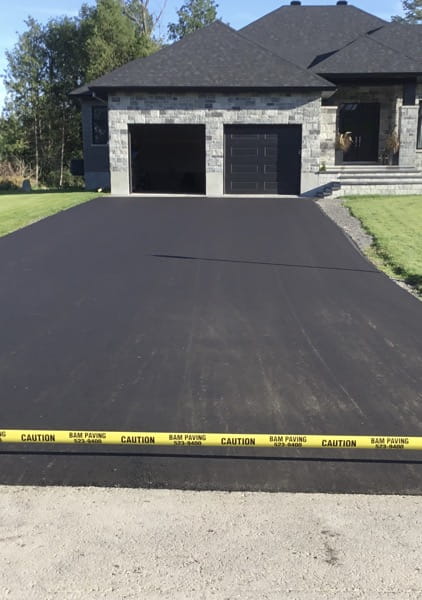Why seal your asphalt driveway?
1. It prevents erosion of the binding agents in the asphalt.
2. It keeps the fine sand locked in to keep the asphalt smooth in appearance and keep your asphalt looking new.
3. It extends the life of your asphalt by preventing cracks.
Driveway sealing is best to be done in early spring to late fall. It should never be applied below freezing temperature. It is advisable to apply sealer to your newly paved driveway at least after one year.
There are two types of driveway sealer on the market: oil-based and water based. Canark Paving uses oil-based sealer because it has a longer lasting finish. Water based sealers form a protective layer on top of the asphalt, but oil-based goes a step further by penetrating the asphalt which forms a flexible bond that helps prevent cracking due to temperature changes that cause the ground to expand and contract.
Sealing your driveway:
Step 1: Clean all debris from your driveway. Canark uses commercial grade blower to clear any dust, dirt, or plant debris off your driveway.
Step 2: If cracks are present, a tar mixture is used to fill the gaps. Our sealing specialist will advise our clients which cracks require filling based on the depth. In some instances, hairline/spider cracks can be noted in some driveways. These cracks are extremely shallow which prevents the filler from staying in place, therefore, a good coat of our commercial oil-based sealer will suffice for coverage of these areas.
Step 3: Sealer is applied with a commercial grade spray gun to evenly coat your driveway. Each layer is applied overlapping the previous layer to ensure a good layer of coat is applied to your driveway. It is good to note that cars need to stay off your newly sealed driveway for 24 hours to allow it to cure.
Please contact us for detailed pricing on your driveway sealing product. Let your friends know about our driveway sealing services and receive a 10% discount on your job.

